Recently I have been writing a lot about the economic crisis in the UK and the rest of the world. With inflation, rising interest rates and recession, it can all feel a little depressing. So this blog takes a very different view – looking at some of the unsung success stories of the past few years and decades in the global economy.
Big improvements
- Fall in global poverty rates
- Economic growth with falling carbon emissions
- Rise of renewable energy that is now cheaper than fossil fuels.
- Rise in educational standards.
- Increase in life expectancy
Fall in poverty rates
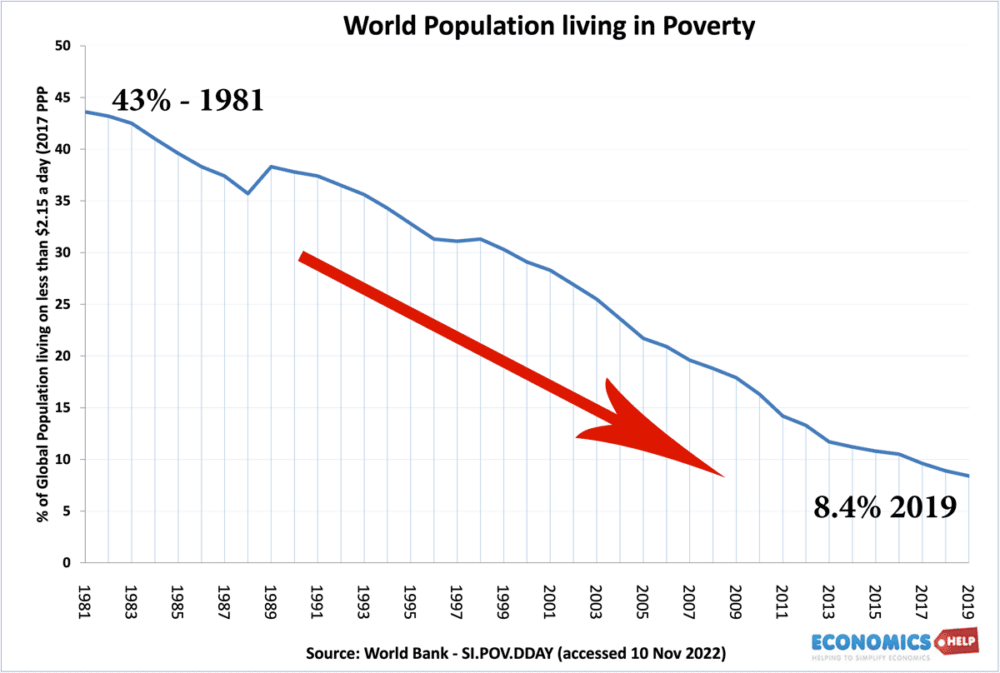
This shows the % of the global population living below the World Bank’s measure of absolute poverty ($2.15) a day. In 1981, 44% of the world lived with less than this daily income. By 2019, that had fallen to 8.4%. This is a huge improvement in life quality for the poorest in the world. It is true that $2.15 is an extreme level of poverty, and given the wealth of the world, unacceptable. However, lifting millions of people away from this extreme poverty is a big achievement. It is progress that many are unaware of. In a survey, a majority of people will respond to say poverty has increased, but from this metric, it has reversed.
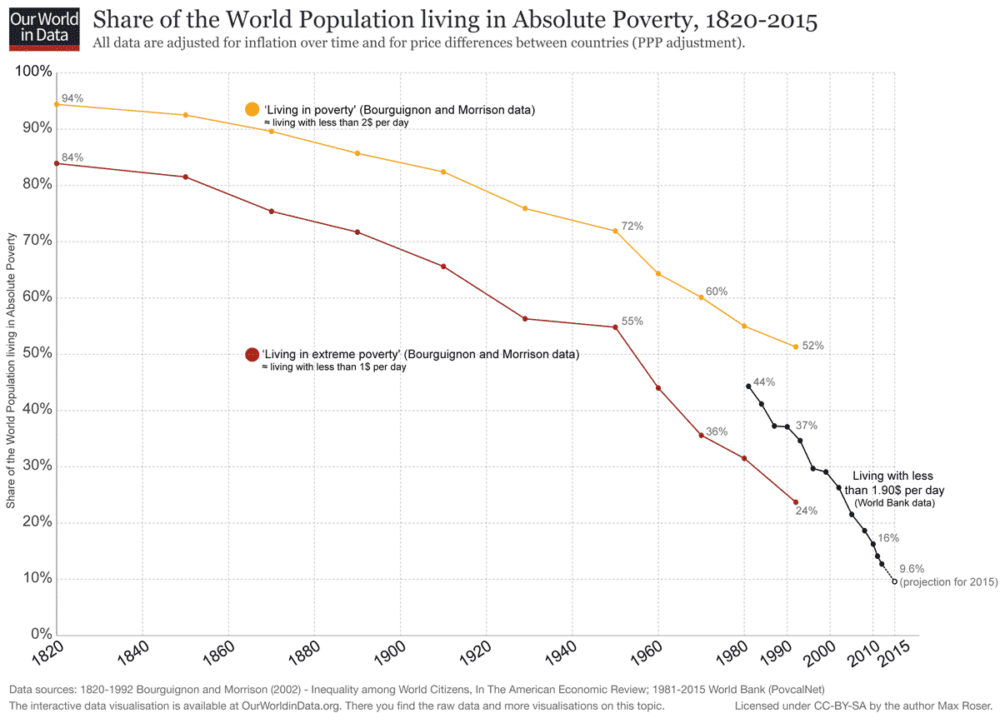
If we go further back in time, even more people have been lifted out of poverty. The main cause of poverty alleviation is economic growth and rising incomes. In the late nineteenth and twentieth century, it was Europe and America. In recent decades, it has been growing in southeast Asia and Latin America. Certainly, with China the most populous country, its strong economic growth is a major factor, but it is definitely much more broadly based than just China.
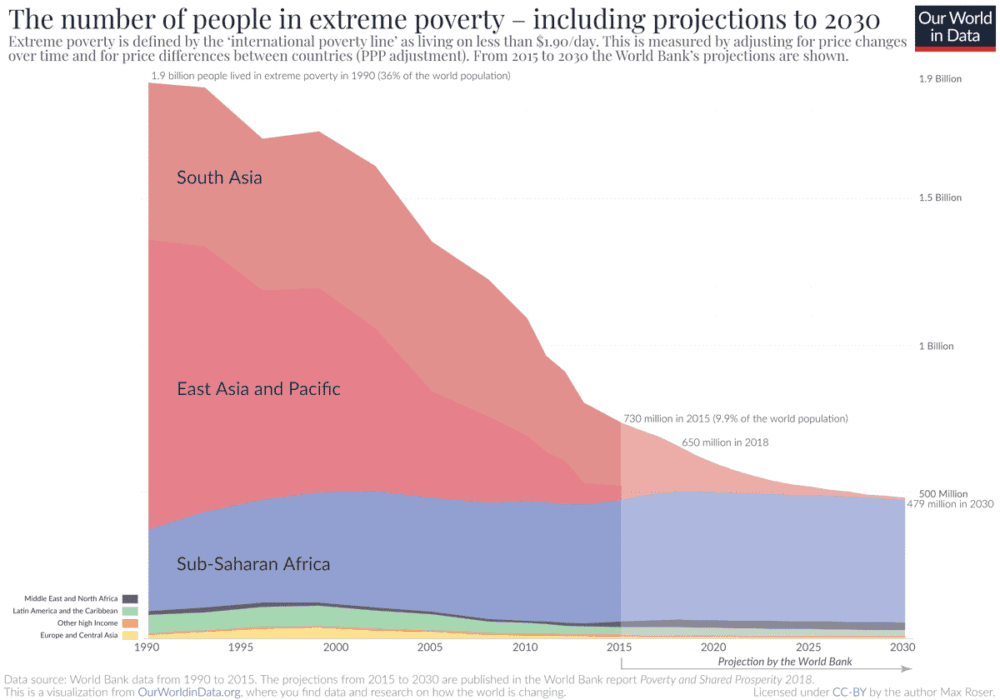
The real sticking point for global poverty is now Sub-Saharan Africa with is forecast to hold the vast majority of future poverty.
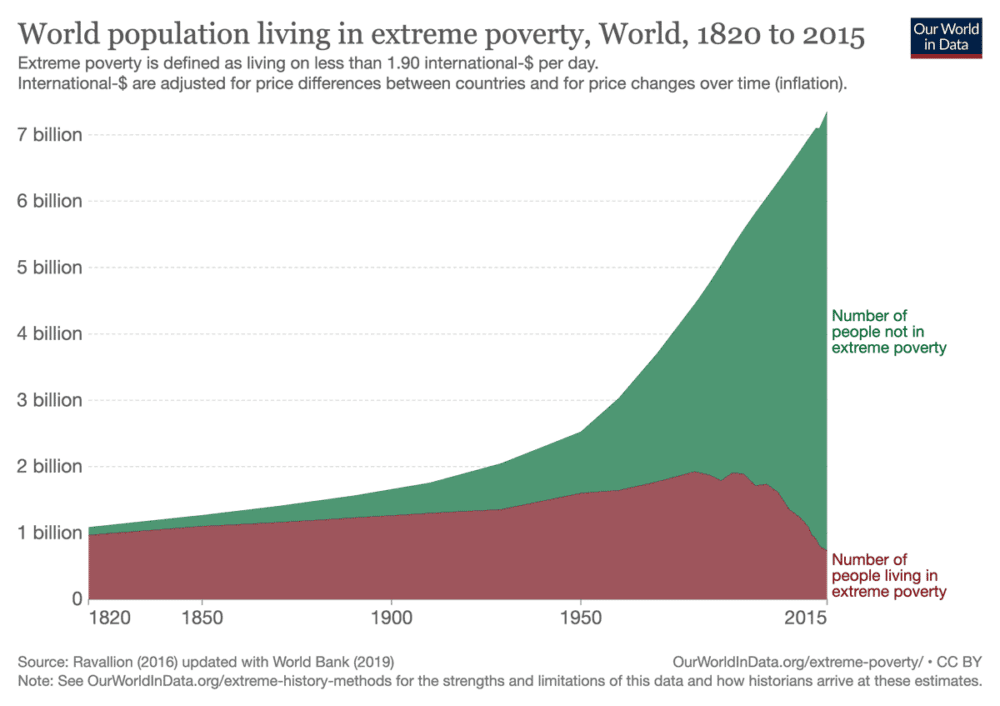
Another way of looking at the same situation is the absolute number of people. Since the 1980s, the number of people living in extreme poverty has fallen, whilst the number not living in extreme poverty has soared.
Economic growth with falling carbon emissions
One of the world’s great challenges is to reduce carbon emissions to prevent excess global warming from damaging the future of the planet. There are some who argue that we should not sacrifice living standards to protect the environment. But the good news is we can now do both. We can maintain economic growth whilst reducing carbon emissions.
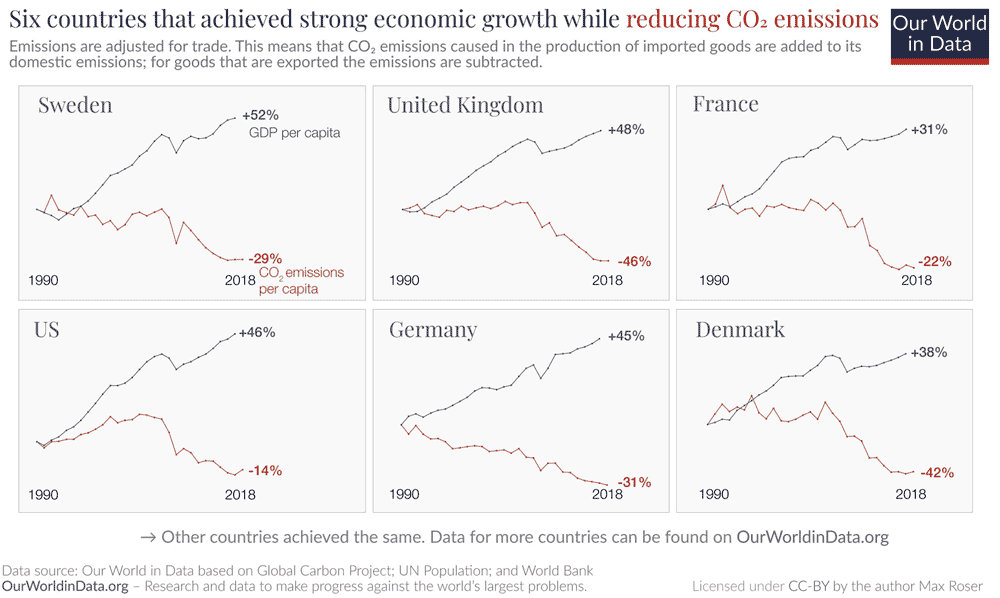
Many countries have decoupled economic growth from carbon emissions. Our World in Data.
Even small carbon taxes have led to a sharp fall in coal output (the worst polluter) enabling higher growth with less carbon emissions.
Some claim countries are exporting carbon emissions by importing goods and energy from elsewhere. However, this only accounts for a small difference. Whether you use consumption-based or production-based measures the effect is the same.
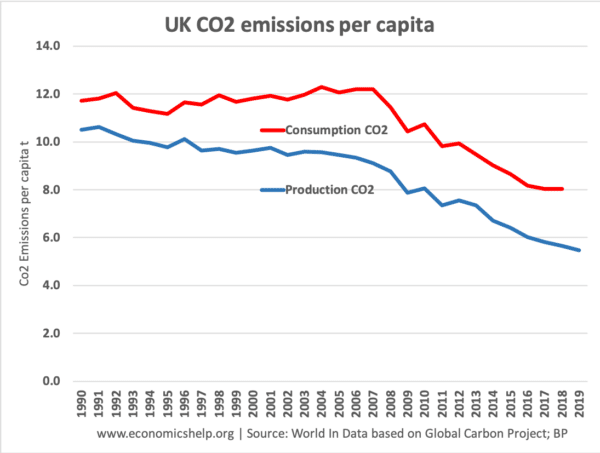
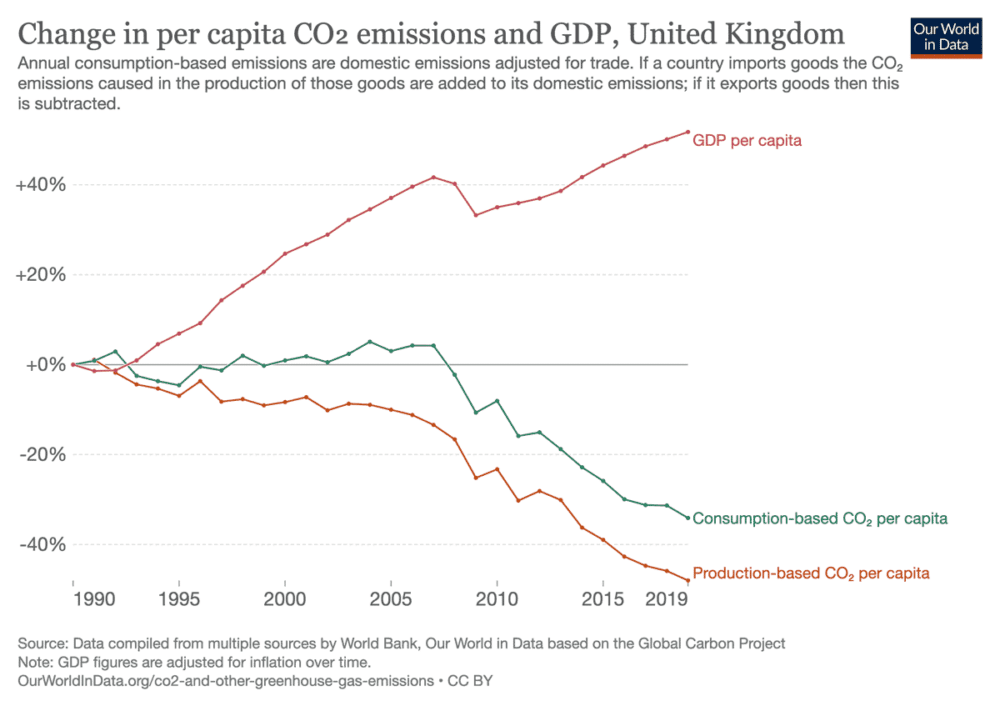
3. Rise of renewable energy is now cheaper than fossil fuels.
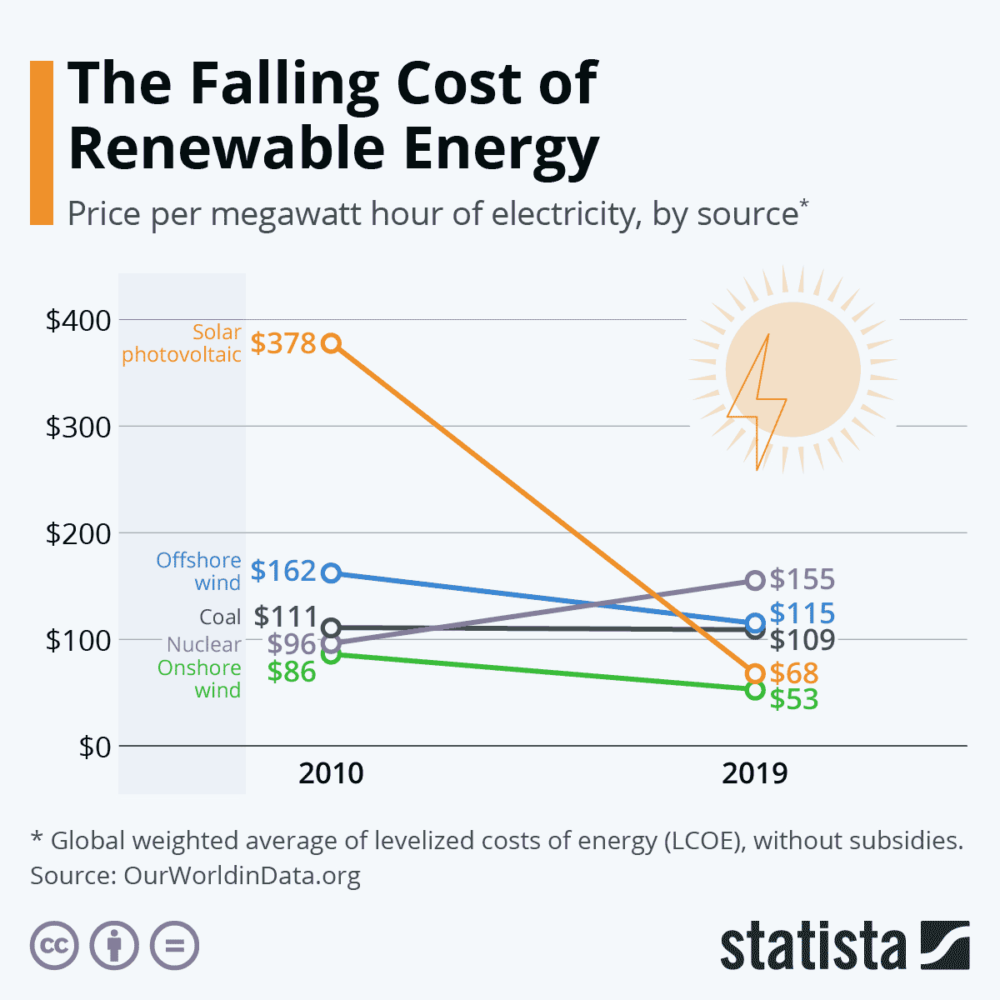
One of the best pieces of economic news in recent years is the extent to which renewable energy has fallen in price – making it cheaper and more economical than pollutant-heavy fossil fuels.
Renewable energy has fallen in price through technological innovation, economies of scale and the process of learning by doing. The decline in costs has often fallen a steady-state path – suggesting it will continue to become more economical in the fture. Fossil fuel-based energy does not have this same fall in costs, because most of the production is based on raw materials.
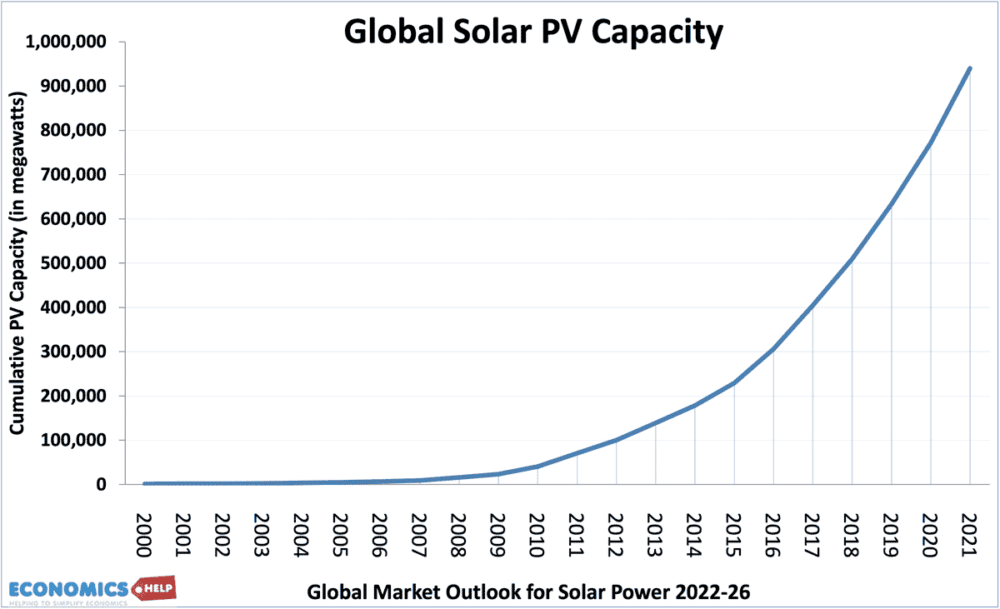
This fall in solar costs is understandably leading to an exponential rise in solar power capacity.
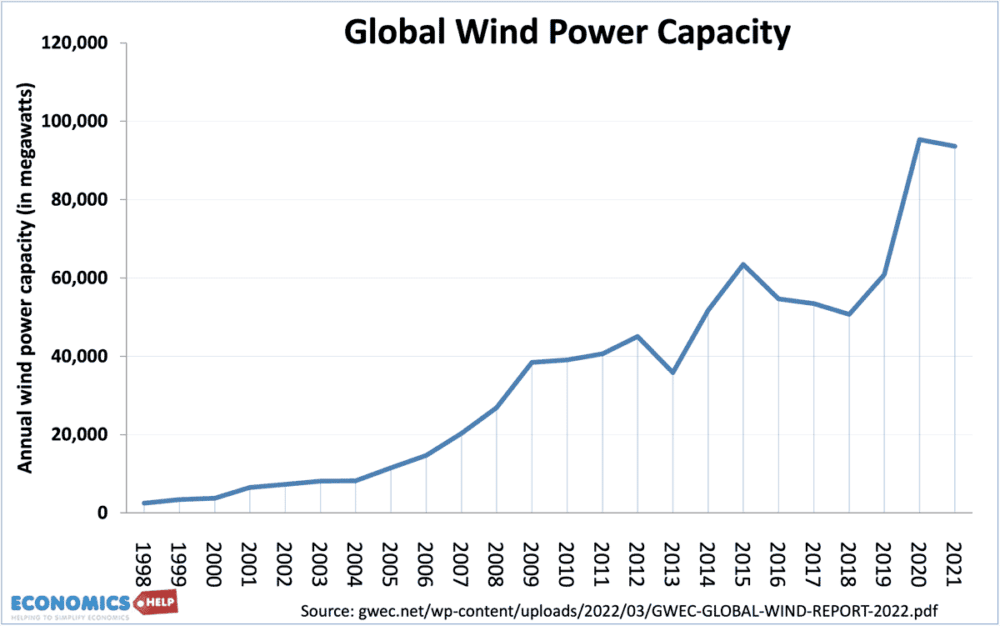
It is a similar story with global wind power. Significant investment by China in off-shore wind is a major factor behind the global surge.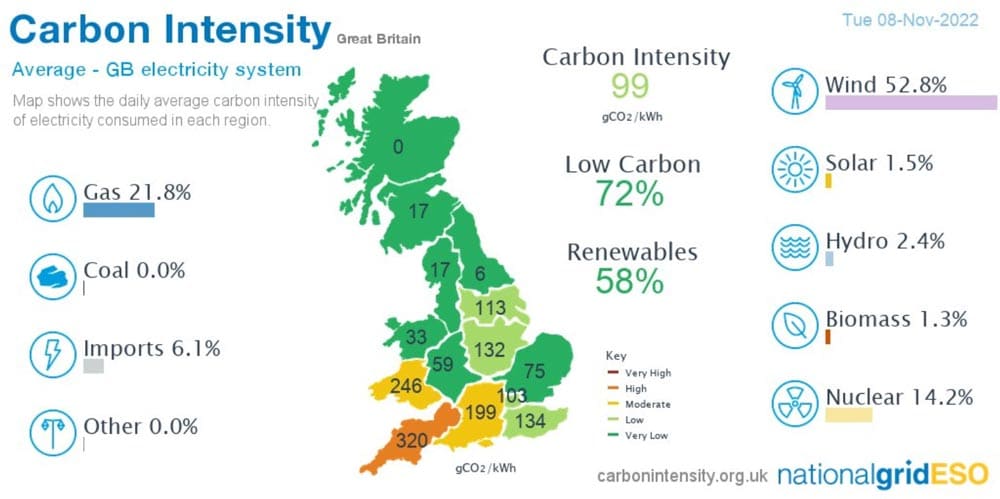
On one particularly windy day last week – wind energy accounted for 52.8% of the total electric grid. Coal was zero. Gas 21.8%
There is a huge potential for all countries to exploit renewable energy – reducing dependence on fossil fuels, avoiding problems of fossil fuel price fluctuations and importantly protecting the environment. Ultimately, this will lead to improve living standards as greater access to renewable energy will reduce the cost of energy imports
With the relative fall in costs, the only question is why are we keeping so much fossil fuel generation. One reason is land use, the other is the time and cost of replacing infrastructure and connecting to the grid. The other is the political power of fossil fuels – around the world there are often subsidies for fossil fuels, which makes no economic or environmental sense.
Rise in educational standards
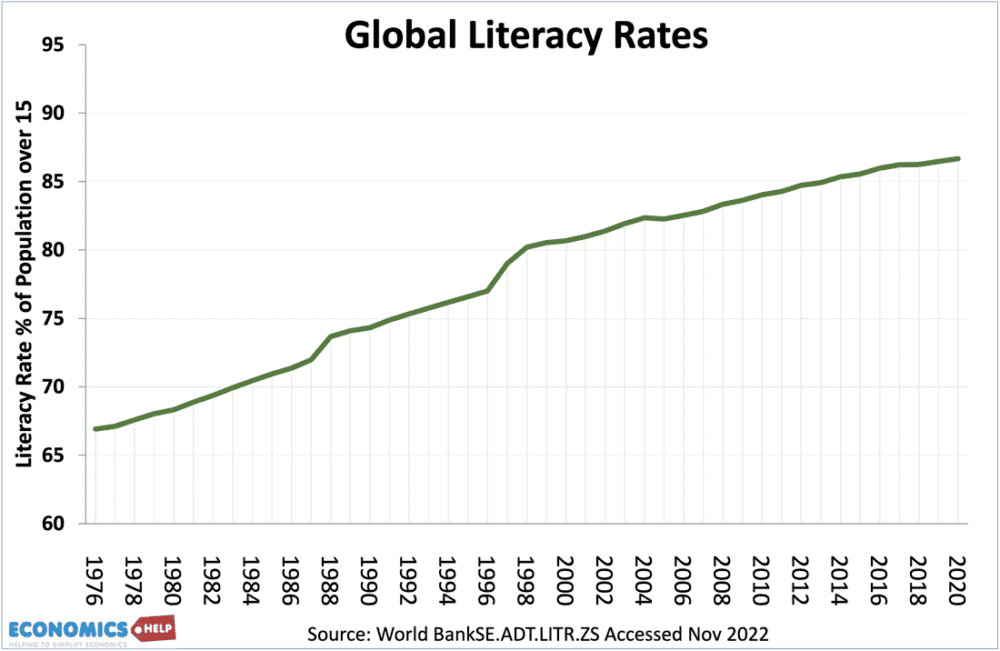
Economic growth and improved public sector initiatives have led to a rise in global literacy rates from 67% in 1976 to 87% in 2020.
It is also important how the world is becoming more equal in terms of education with regions and countries catching up with the industrialised world. Also, female rates are starting to get closer to male rates of education. This will be a great equalising force for the future global economy.
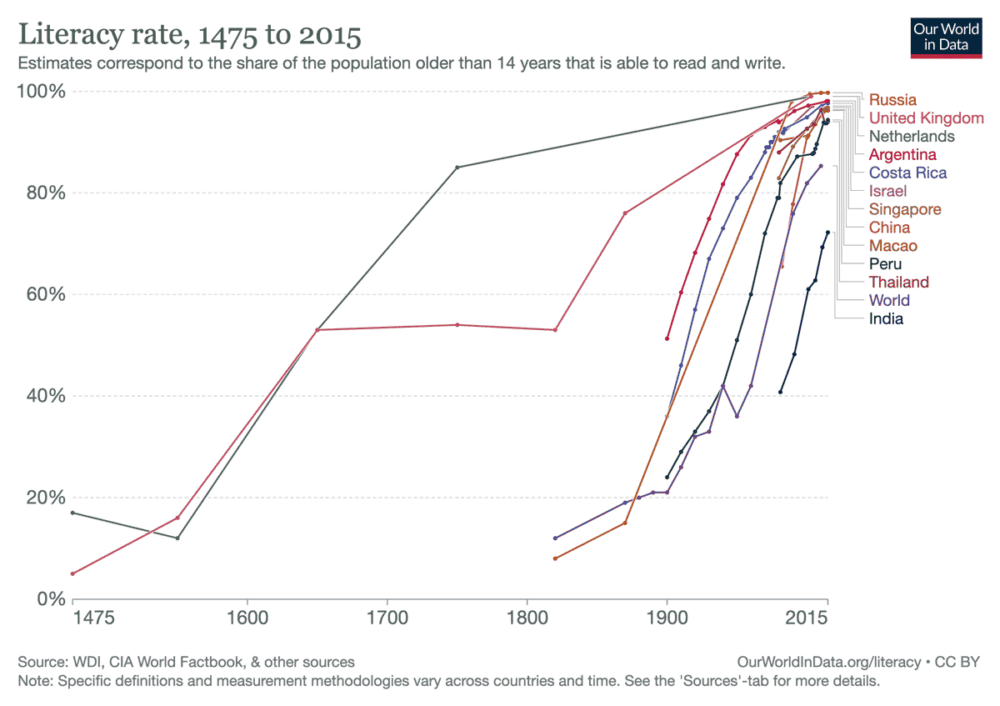
Life expectancy
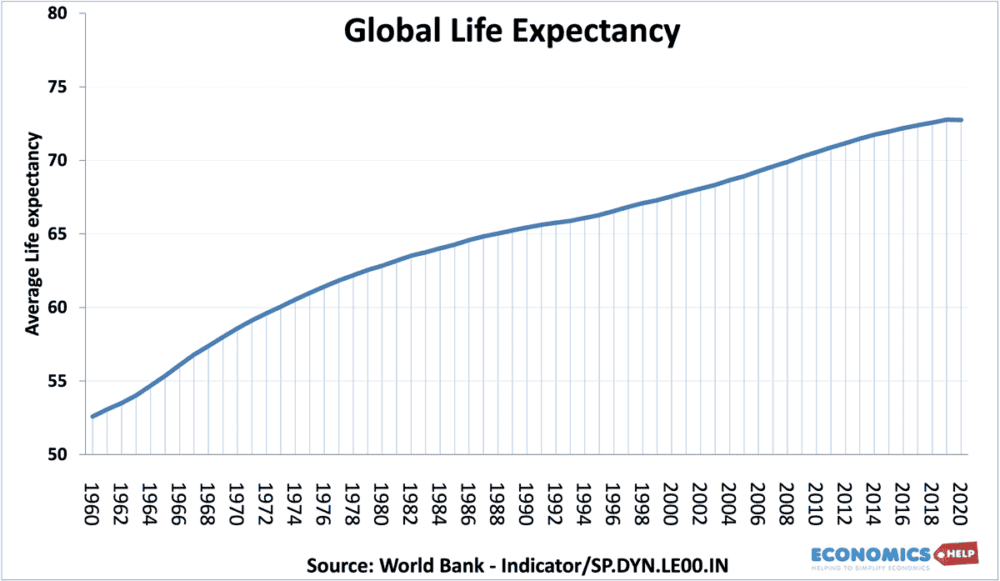
A final benefit is the growth in life expectancy. Again, there has been an important catch-up effect with southeast Asia, Latin America and Africa all seeing big rises in life expectancy and this is forecast to continue in the future decades.
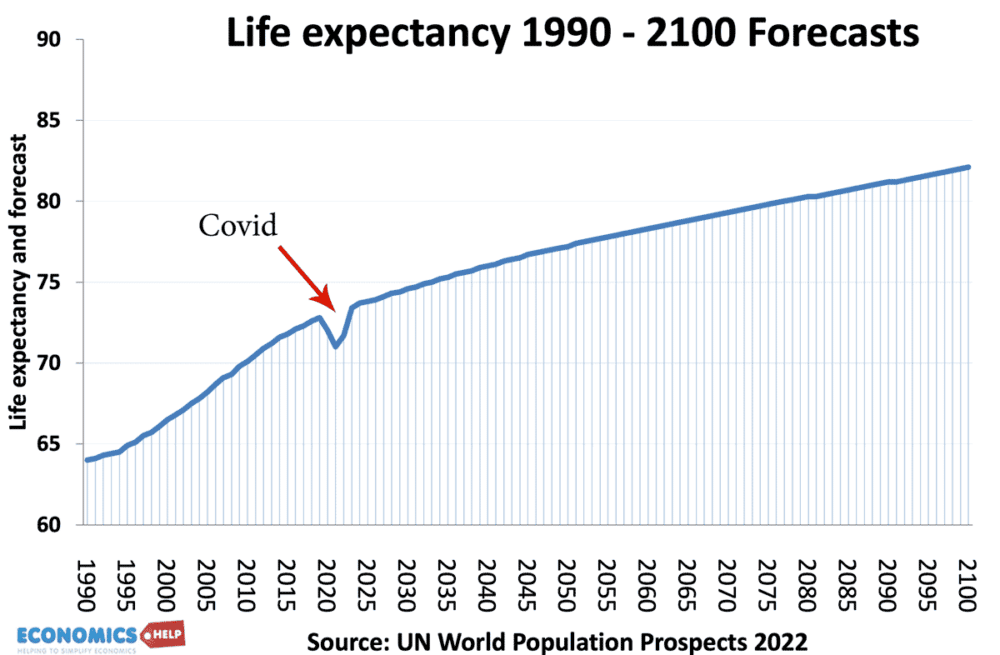
Final Bonus Graph
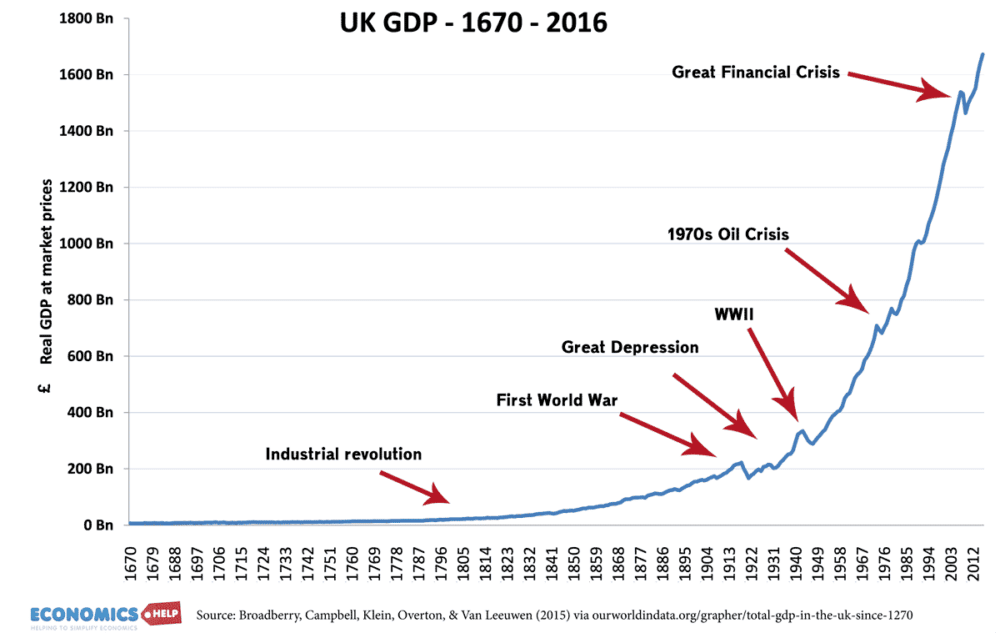
A final bonus graph is UK GDP, with all the economic crises labelled!
Further reading

Really interesting post. Thanks for writing this all up. Are the charts adjusted for inflation? I’m just wondering if more people are living above the $2.15 partly because $2.15 is now worth less.
It is real prices, though it was updated to reflect change in relative living costs. https://www.worldbank.org/en/news/factsheet/2022/05/02/fact-sheet-an-adjustment-to-global-poverty-lines#3